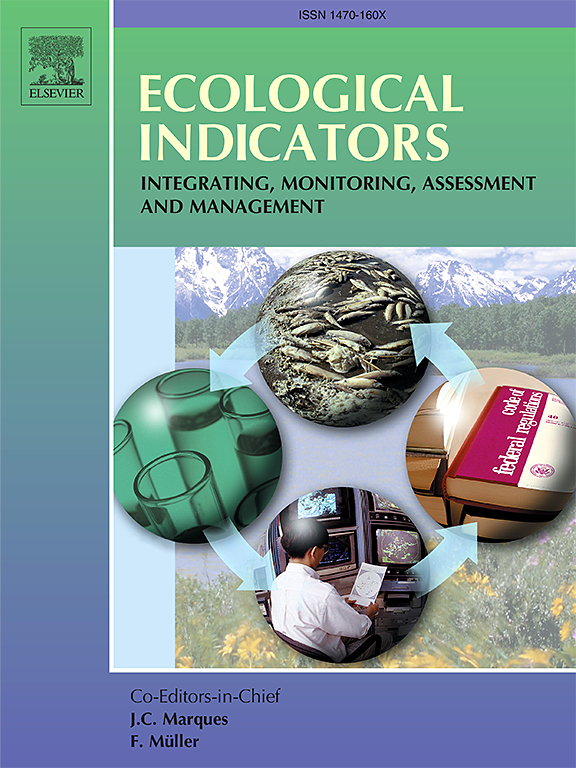迈向可持续农业:欧洲基于关键绩效指标的农场级评估蓝图
IF 7
2区 环境科学与生态学
Q1 ENVIRONMENTAL SCIENCES
引用次数: 0
摘要
关键绩效指标(KPI)方法已成为评估农业可持续性绩效的有力工具。随着数据可用性的增加,在农场一级进行可持续性评估以及从传统的基于实践的政策向基于绩效的政策过渡的机会越来越多。在本文中,我们提出了一个基于关键绩效指标的欧洲范围内农场可持续发展绩效评估和监测系统的蓝图。通过借鉴有关农场层面可持续性评估系统和工具的文献,我们综合了八项指导原则和五步流程框架,用于围绕基于绩效的政策的潜在优势开发和实施欧洲农业KPI系统。指导原则包括定义可持续性,让利益相关者参与,确保跨部门和国家的适用性,使用规范基准,以及实施决策支持方法。提议的流程框架可以通过建立可持续性目标、建模目标与可用数据之间的联系、KPI开发、在线用户界面创建和适应性管理来指导欧洲的公共和私人利益相关者。通过利用先进的分析方法和整合多种农业数据源,我们的系统旨在为政策制定者提供机会,利用基于绩效的金融支持机制来激励农民采用可持续农业实践。本文讨论了支持有效和合乎道德地实施所建议的KPI系统的政策结构的基本组成部分。本文章由计算机程序翻译,如有差异,请以英文原文为准。
Towards sustainable agriculture: A blueprint for European KPI-based farm-level assessment
Key Performance Indicator (KPI) methodologies have emerged as potent tools for estimating sustainability performance in agriculture. With the proliferation of data availability, there is a growing opportunity to conduct sustainability assessments at the farm level and transition from traditional practice-based policies to performance-based policies. In this paper, we propose a blueprint for a Europe-wide KPI-based farm level sustainability performance assessment and monitoring system. By drawing insights from literature on farm-level sustainability assessment systems and tools, we synthesized eight guiding principles and a 5-step process framework for developing and operationalizing a European Agricultural KPI system built around the potential advantages of performance-based policies. The guiding principles include defining sustainability, involving stakeholders, ensuring applicability across sectors and countries, using normative benchmarking, and implementing decision support approaches. The proposed process framework can guide public and private stakeholders in Europe through the establishment of sustainability goals, modeling linkages between objectives and available data, KPI development, online user interface creation, and adaptive management. By leveraging advanced analytics and the integration of diverse agricultural data sources, our system aims to provide policymakers with the opportunity to instrumentalize performance-based financial support mechanisms to incentivize the adoption of sustainable agricultural practices among farmers. The essential components of a policy structure supporting the effective and ethical implementation of the proposed KPI system are discussed.
求助全文
通过发布文献求助,成功后即可免费获取论文全文。
去求助
来源期刊

Ecological Indicators
环境科学-环境科学
CiteScore
11.80
自引率
8.70%
发文量
1163
审稿时长
78 days
期刊介绍:
The ultimate aim of Ecological Indicators is to integrate the monitoring and assessment of ecological and environmental indicators with management practices. The journal provides a forum for the discussion of the applied scientific development and review of traditional indicator approaches as well as for theoretical, modelling and quantitative applications such as index development. Research into the following areas will be published.
• All aspects of ecological and environmental indicators and indices.
• New indicators, and new approaches and methods for indicator development, testing and use.
• Development and modelling of indices, e.g. application of indicator suites across multiple scales and resources.
• Analysis and research of resource, system- and scale-specific indicators.
• Methods for integration of social and other valuation metrics for the production of scientifically rigorous and politically-relevant assessments using indicator-based monitoring and assessment programs.
• How research indicators can be transformed into direct application for management purposes.
• Broader assessment objectives and methods, e.g. biodiversity, biological integrity, and sustainability, through the use of indicators.
• Resource-specific indicators such as landscape, agroecosystems, forests, wetlands, etc.
 求助内容:
求助内容: 应助结果提醒方式:
应助结果提醒方式:


